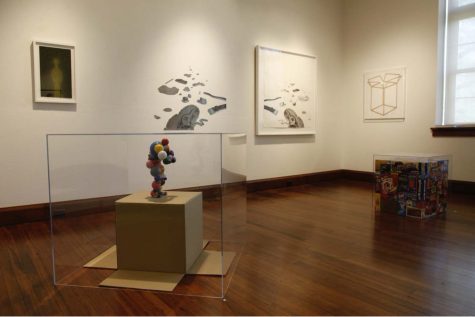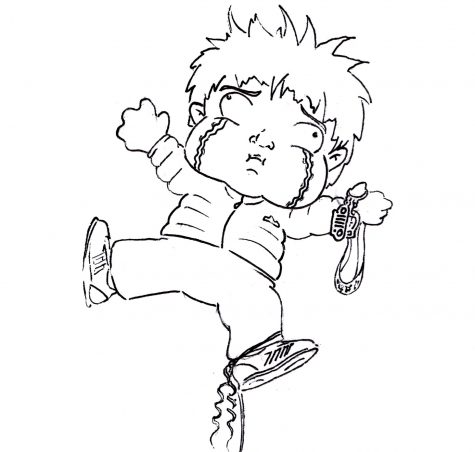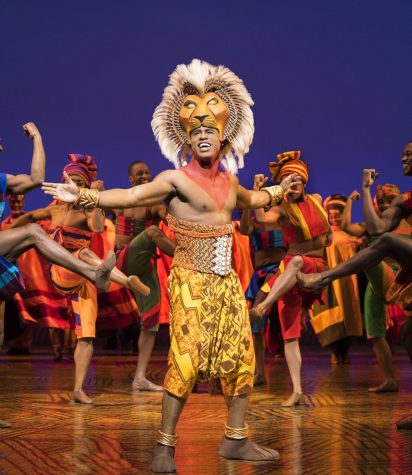Anti-Racist Resources to Read and Watch
October 1, 2020
To Read:
Stamped
 Stamped is a book about race. It follows the construction of race from its origin, the writings of Gomes de Zurara in the 15th century, to racism in the 21st century. A quote from the beginning of the book affirms that “This is NOT a history book,” and it’s not. Stamped is a book everyone should read in order to begin to understand “why we are where we are.” I listened to Stamped as an audiobook read by Jason Reynolds, whose writing is funny at times and strikingly beautiful at others, like when he uses the made-up word “breathlaughter” as a synonym for freedom. One of my favorite parts is his recurring “wait…what?” after he explains a particularly absurd idea. Ibram X. Kendi and Jason Reynolds show in Stamped how racists have used race for hundreds of years to gain and retain power.
Stamped is a book about race. It follows the construction of race from its origin, the writings of Gomes de Zurara in the 15th century, to racism in the 21st century. A quote from the beginning of the book affirms that “This is NOT a history book,” and it’s not. Stamped is a book everyone should read in order to begin to understand “why we are where we are.” I listened to Stamped as an audiobook read by Jason Reynolds, whose writing is funny at times and strikingly beautiful at others, like when he uses the made-up word “breathlaughter” as a synonym for freedom. One of my favorite parts is his recurring “wait…what?” after he explains a particularly absurd idea. Ibram X. Kendi and Jason Reynolds show in Stamped how racists have used race for hundreds of years to gain and retain power.
-Maddy Pass (‘23)
Minor Feelings: An Asian American Reckoning
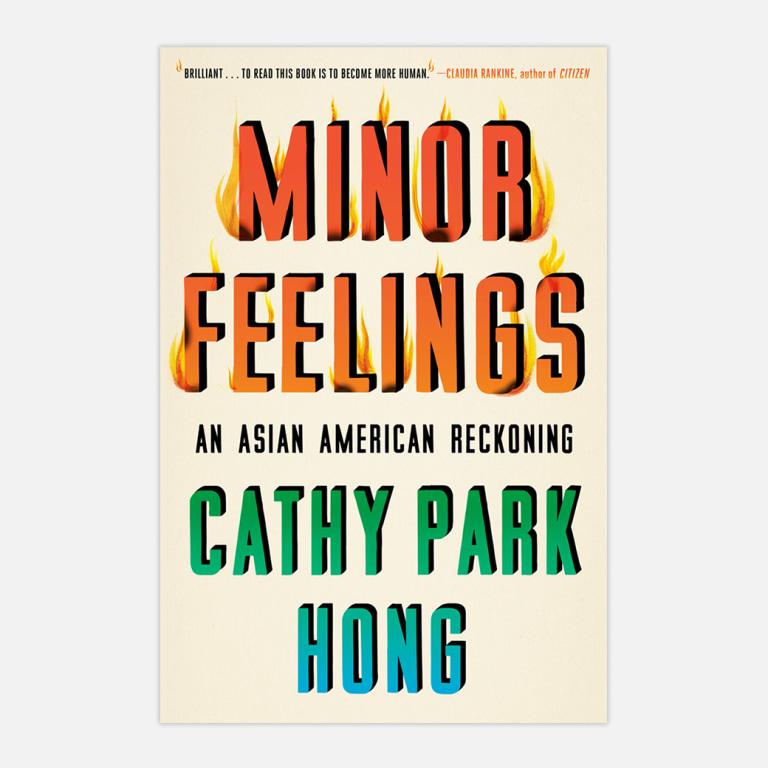 Cathy Park Hong’s 2020 book of nonfiction essays, Minor Feelings: An Asian American Reckoning, impressively details her experiences as a Korean-American. It explores Asian-American identity at a personal, historical, and psychological level with beautifully crafted essays. As an Asian-American, I’ve never felt anything like what I felt when I was reading this. It hit so close to home, and it truly details what many POCs in this country go through on a daily basis. A quote from the book that I think brilliantly displays her writing is:“Asian Americans inhabit a purgatorial status: neither white enough nor black enough, unmentioned in most conversations about racial identity. In the popular imagination, Asian Americans are all high-achieving professionals. But in reality, this is the most economically divided group in the country, a tenuous alliance of people with roots from South Asia to East Asia to the Pacific Islands, from tech millionaires to service industry laborers. How do we speak honestly about the Asian American condition—if such a thing exists?” I highly recommend this book to anyone who is trying to understand this country through other lenses, or to any Asian American who is struggling with their own identity.
Cathy Park Hong’s 2020 book of nonfiction essays, Minor Feelings: An Asian American Reckoning, impressively details her experiences as a Korean-American. It explores Asian-American identity at a personal, historical, and psychological level with beautifully crafted essays. As an Asian-American, I’ve never felt anything like what I felt when I was reading this. It hit so close to home, and it truly details what many POCs in this country go through on a daily basis. A quote from the book that I think brilliantly displays her writing is:“Asian Americans inhabit a purgatorial status: neither white enough nor black enough, unmentioned in most conversations about racial identity. In the popular imagination, Asian Americans are all high-achieving professionals. But in reality, this is the most economically divided group in the country, a tenuous alliance of people with roots from South Asia to East Asia to the Pacific Islands, from tech millionaires to service industry laborers. How do we speak honestly about the Asian American condition—if such a thing exists?” I highly recommend this book to anyone who is trying to understand this country through other lenses, or to any Asian American who is struggling with their own identity.
-Sara Cao (‘22)
Savage Inequalities: Children in America’s Schools
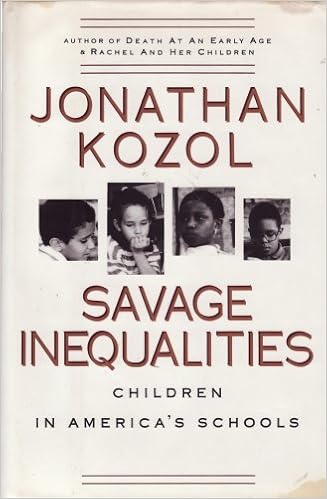 Savage Inequalities, written by Jonathon Kozol, showcases the American public school system in cities across the country including East St. Louis, Chicago, Washington D.C., and New York City. Kozol began this project in 1988 and in his studies, he highlights the differences between schools in close proximity by showing the inequities and lack of basic necessities in poor and nonwhite urban schools in comparison to mostly white and wealthy schools. With alarming details and statistics about certain school environments, along with conversations with staff and students, he sparks the question: How did we get here, and will we ever truly fix it? This book enforces reflection, especially to communities built on wealth and higher education, but also ignites outrage for the consistent mistreatment and inequalities presented in these schools. Ultimately, Kozol shows the explicit disregard for the innocence and potential of the kids sabotaged by this system each year, solely based on their predetermined “position” in this country based on their race, place of residence, and socioeconomic status.
Savage Inequalities, written by Jonathon Kozol, showcases the American public school system in cities across the country including East St. Louis, Chicago, Washington D.C., and New York City. Kozol began this project in 1988 and in his studies, he highlights the differences between schools in close proximity by showing the inequities and lack of basic necessities in poor and nonwhite urban schools in comparison to mostly white and wealthy schools. With alarming details and statistics about certain school environments, along with conversations with staff and students, he sparks the question: How did we get here, and will we ever truly fix it? This book enforces reflection, especially to communities built on wealth and higher education, but also ignites outrage for the consistent mistreatment and inequalities presented in these schools. Ultimately, Kozol shows the explicit disregard for the innocence and potential of the kids sabotaged by this system each year, solely based on their predetermined “position” in this country based on their race, place of residence, and socioeconomic status.
-Jacqueline Harris (‘22)
To Watch:
Dear White People
 The 2017 Netflix show, Dear White People, explores the experience of black students at a highly privileged Ivy League university. Although this show does explore more obvious cases of racism such as blackface, I love how it also explores more day-to-day microaggressions that are frequently ignored as examples of racism. In addition, Dear White People is very easily digestible, while other anti-racism sources can be difficult to understand (I ended up watching the whole show in a week and a half). The characters are both hilarious, relatable, and at the same time portray the experience of modern-day racism through different lenses of identity. I highly recommend watching Dear White People.
The 2017 Netflix show, Dear White People, explores the experience of black students at a highly privileged Ivy League university. Although this show does explore more obvious cases of racism such as blackface, I love how it also explores more day-to-day microaggressions that are frequently ignored as examples of racism. In addition, Dear White People is very easily digestible, while other anti-racism sources can be difficult to understand (I ended up watching the whole show in a week and a half). The characters are both hilarious, relatable, and at the same time portray the experience of modern-day racism through different lenses of identity. I highly recommend watching Dear White People.
-Lizzie Wagner (‘22)



